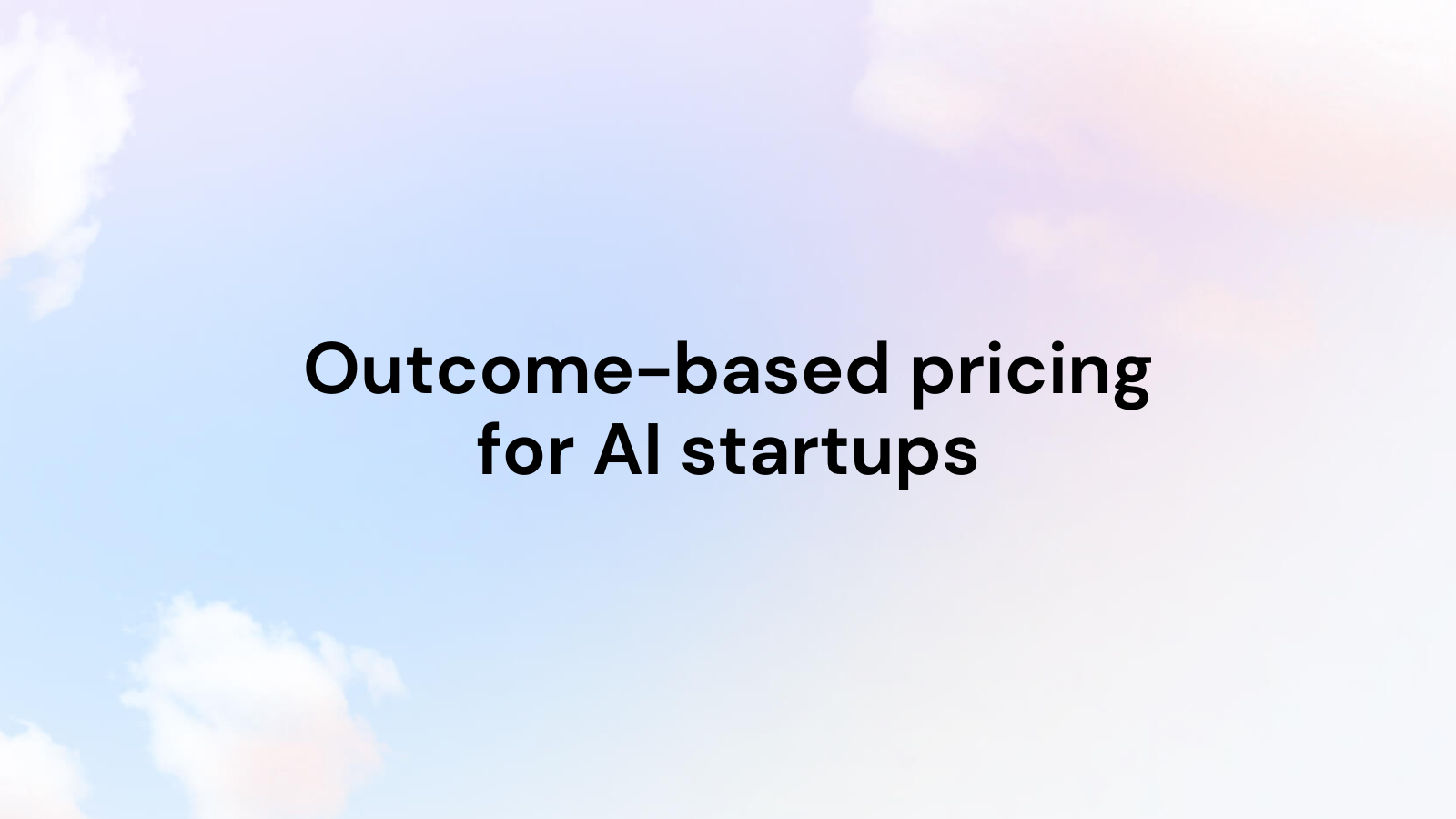The Biggest PTSD I've Had at Work: Pricing

Who am I?
I've been a VP of Engineering at fast-growing startups for over a decade. I've seen every kind of pricing model, technical architecture, and growth hack while scaling products from zero to one—and one to a hundred. Most recently, I'm co-founder of EGI, where we're building AI agents for enterprise productivity.
Why Pricing Matters
Pricing is not just a go-to-market lever. It's product design. It should be treated as a first-class concern. Every product feature influences pricing—and pricing shapes how users experience the product. Yet most teams treat it as an afterthought.
The Most Common Mistake
Here's what I've seen (and done) too many times: We create a Pricing table. Link it with a foreign key to Customer. Done. Shipped. We move on. Until... it breaks.As pricing strategies evolve—tiers, usage-based plans, credits, discounts, feature-gated add-ons—that simple model turns into a tangled mess. What starts as a basic pricing table quickly becomes five interconnected tables: pricing linked to customers, linked to users, linked to product features, linked to discounts, linked to credits. The relationships become so complex that just describing them makes your head spin.It becomes impossible to connect pricing to actual feature usage. We can't support experiments, coupons, or nuanced entitlements. The model calcifies. And the business slows down.
The Breaking Point
The real pain hits at product-market fit. Up until that point, pricing doesn't matter because you're still finding your market. But once you need to scale growth and experiment with different strategies to rapidly capture that market—that's when you realize your pricing infrastructure can't keep up. The cruel irony? By that time, you already have customers using your homegrown solution. Ripping it out becomes incredibly painful. So companies wait way too long, until multiple executives are screaming about missed revenue forecasts, sales teams can't deliver on pricing commitments, and customer success is dealing with churn from confused customers. Working on pricing tables is like doing forensic assessment of your entire business strategy. You can literally look at the pricing code and see the complete history of every product pivot, every failed experiment, every strategic shift your startup has made.
The Cost of This Mistake
Product growth depends on speed of iteration. We want to test, launch, and evolve features and pricing together in a tight loop. But when the pricing data model is broken, that loop breaks too. Pricing becomes the #1 bottleneck to product innovation. The technical complexity is brutal. Pricing has to be a highly consistent dataset—you can't miss transactions, you can't apply discounts wrong, you can't afford failures. The tolerance for error is essentially zero. So every pricing change requires thorough testing, careful architecture, and significant engineering time.Meanwhile, this isn't even your product's unique value proposition. It's like authentication—critically important, technically complex, but not what makes your product special.
How It Broke My Relationship With the Business
Our CEO, CFO, and CRO were rightly focused on monetizing usage fast. They came to me—"Can we launch a new pricing model this week?" "Can we add credit packs for this cohort?" "Can we test a new discount?"And I felt stuck. Because I knew we'd built ourselves into a corner. The pricing backend, frontend, billing logic—it had all become a painful knot of technical debt. My team dreaded touching it. Every change was brittle and expensive. The stakeholder management became brutal. I had empathy for my business partners—as an executive responsible for growth, I would ask for the same things they were asking for. But as an engineer, I knew our architecture couldn't deliver.All I could do was present trade-offs and be transparent about our limitations: "We can't try this experiment quickly. That one's too complex. If we do that, we'll need to re-architect everything. Give us three months."Three months in growth terms? Way too long.
What I'm Doing Differently Now
Simple: I'm not building pricing infrastructure from scratch anymore. At my new startup, I chose Atlas from day one. Not because I needed the engineering bandwidth right now, but because I wanted to choose the right infrastructure to scale. It's like choosing between a single CPU machine and one that scales from 1 to 100,000 users.I'm trusting a team that's solved this deeply and cleanly.
Why Atlas
The best way to describe Atlas is: Google Tag Manager meets Stripe. It gives business leaders—CEO, CRO, CFO—the power to design, launch, and iterate on pricing without needing engineers. Infinite flexibility for pricing experiments, monetization strategies, and promotions. Setting it up took 15 minutes. We literally copy-pasted the prompt Atlas recommended into our AI coding agent, and we were live. No complex integrations, no weeks of development—just an SDK that works.
The Game-Changer
Here's what I have now that I've never had before: My go-to-market teams have infinite control over adapting pricing to customers.Instead of making customers meet my pricing model, I can adapt my pricing model to where customers find it most relevant. I can create 10 different pricing pages and test them on the fly. Any new feature we launch automatically gets picked up by Atlas's pricing engine and becomes available for new tiers or experiments. Most importantly? My engineering team will never have another pricing conversation. No more dreaded pricing tickets in the backlog. No more explaining why a "simple" pricing change will take six weeks.For me, this is a massive win:
- The business moves fast with zero blockers.
- Engineering no longer carries pricing tech debt.
- I finally sleep well at night.
My Advice to CTOs
If a CTO tells me "I'll just start simple and scale later," I say: Do start simple. Truly start simple by not building pricing at all.The simplest thing you can do is remove pricing tables from your database schema entirely. Use a solution like Atlas that's built by engineers, for engineers.Don't make the same mistake I made multiple times. Treat pricing like authentication—critically important, but not your competitive advantage. Use the right tool for the job, and focus your engineering talent on what actually differentiates your product.Trust me, your future self will thank you.
Shikhar Mishra
Co-founder of EGI
Ready to Go From Idea to Revenue?
Atlas gives you everything you need, pricing strategy, checkout, billing, analytics, and more to start making money.




